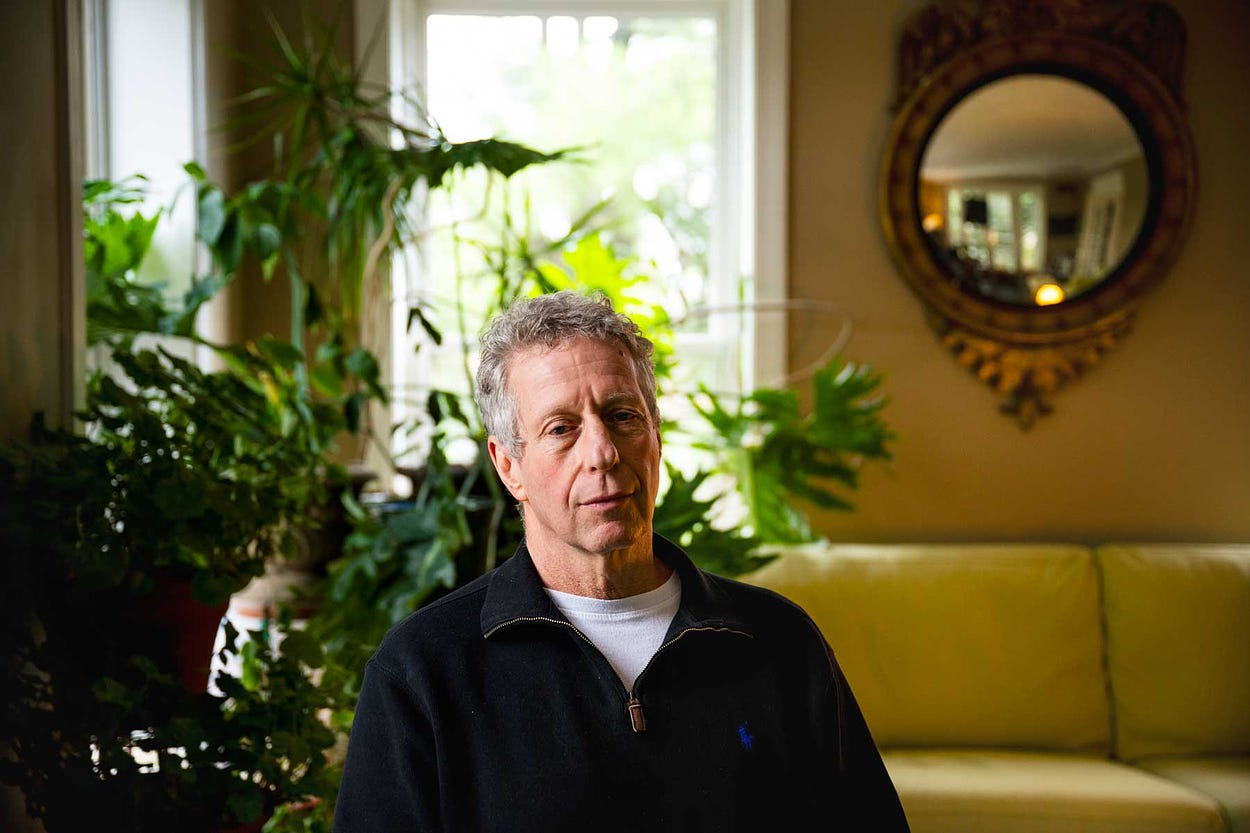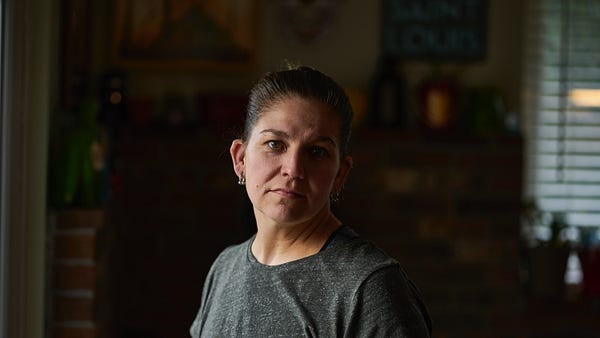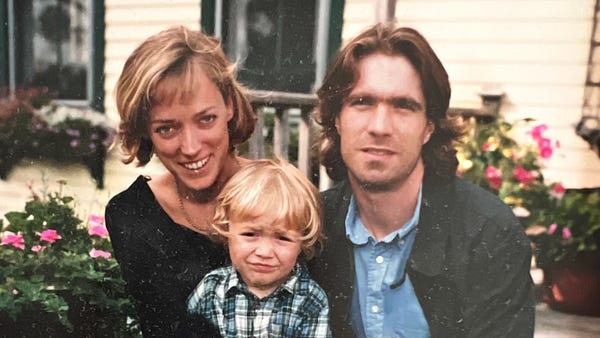
The Free Press

Brian, a U.S. Border Patrol agent who works along the south Texas border, is haunted by something that happened a few years ago. A man—a Mexican cartel member, he believes—emerged from the banks of the Rio Grande carrying two toddlers. The children, a boy and a girl, were wearing nothing but diapers. The man darted across the border, dropped the children fifty feet away, and then raced back into the river to Mexico.
“I picked up these toddlers and looked fifty yards south,” said Brian, a ten–year veteran of the agency, who, like all agents we spoke to for this story, insisted on using a pseudonym. That’s when he saw six adult migrants running across the border as fast as they could. The children, he realized, had been a decoy. “They use these kids to distract us so they can run their illegals up in other places,” he said. As he helped the children to safety, he was outraged. “When I couldn’t pursue those men, I felt like I was letting the American people down.”
Another veteran agent said he’s witnessed the same problem on his watch—and much worse. “We regularly see things that people should never see, like rotting human remains, abuse of every kind, babies and kids dying or dead,” he told The Free Press.
“Do you know what that does to you over time?” he asked. “You have to shut down a part of yourself to keep going.”
Last summer, the Department of Homeland Security’s inspector general, Joseph V. Cuffari, reported that the number of people who eluded capture—also known as “gotaways”—rose over 300 percent from 2019 to 2022, reaching more than 600,000. Many of the gotaways are people seeking a better life. But border officials acknowledge that many others are fentanyl smugglers, human traffickers, or convicted criminals. According to immigration officials, agents intercept just 5–10 percent of the drugs that cross the southwest border.
Now, three-plus years into the worst border crisis in American history, the men and women of the Border Patrol are facing a crisis of their own. By all accounts, those who work along the southern border are a demoralized group. Unable to go after the “bad guys” because they are overwhelmed by the sheer number of migrants, and feeling abandoned by the Biden administration, many agents “just get kind of numb,” said Chris Clem, a twenty-seven-year veteran who retired as chief border agent of the Yuma, Arizona, sector last year.

“We all knew under this administration there’d be a change,” he said. “We expect that every time there’s a political change. But when it turned out that the job became nothing more than processing and releasing these people, that was very hard to take.”
Before the crisis, processing migrants was secondary to “working the line,” as agents call patrolling the border. Today, because of the sheer numbers of people coming into the country, there is little time for anything else beyond processing.
“It feels like a bait and switch,” said Mark, a retired agent who remains in federal law enforcement and works closely with his former colleagues. “We are meant to serve a law enforcement purpose. That’s what we signed up for and are trained for. But suddenly, we’re now expected to act as a humanitarian relief agency, which requires an entirely different set of skills, expectations, resources, and responsibilities. . . ones that most of us don’t have.”
Even when agents spot something suspicious, there is little they can do. “Even if my spidey senses go off, I have to ask myself, how much time can I devote to this?” said Clem. “Because I’ve got 200 more people in line I have to process. They even took away our ability to use DNA testing, so we no longer have the resources to see whether or not we’re processing a real family unit.
“A lot of agents are just trying to go to work and survive,” Clem continued. “And that’s not where you want to be when you’re in law enforcement.”

This accumulation of the frustrations these agents describe has led to a mental health crisis in their ranks. In 2022, there were fourteen suicides among the Border Patrol’s 25,000 agents—nearly twice the number of suicides in 2020, and three times that of 2014. That’s more than double the percentage of suicides among all law enforcement agencies. And, according to several studies, agents suffer from poorer mental health than police officers and the general population.
As a result of the crisis, several congresspeople have introduced bills to fund suicide prevention programs for border guards. In 2021, U.S. Customs and Border Protection (CBP), the federal agency that oversees the agents, brought in Dr. Kent Corso, a suicidologist. He hosts a series of podcasts about suicide prevention posted on the CBP website, among other services. (Corso did not respond to several emails from The Free Press.)
But according to seven Border Patrol sources who spoke to The Free Press, most agents are unwilling to tell their superiors they are depressed or having suicidal thoughts, out of fear it will damage their careers. According to Brandon Judd, the president of the National Border Patrol Council, a union that represents the majority of Border Patrol agents, those who acknowledge mental health problems are usually reassigned to desk duty, which not only stigmatizes them but results in a substantial pay cut, thanks to the loss of overtime. When The Free Press asked Judd why struggling agents don’t reach out for help, he replied rhetorically, “Why would you?”
John Fitzpatrick, a former associate chief who spent nearly thirty years in the Border Patrol, said that “many agents are sympathetic with migrants for making the journey.” One agent told The Free Press that he sometimes finds himself spending time helping mothers who have crossed the border with infants. “I know how to make formula because I raised two kids. . . I know how exhausted that mother is.” He said he’ll often tell the mothers he meets, “ ‘Mama, lay down. I’ll feed your kids.’ ”
But while the agent is helping that mother, dangerous people are infiltrating the country. “There are serious, hardened criminals—MS-13 gang members, potential terrorists, and simply people who have extensive criminal histories,” said Fitzpatrick. “There’s really nothing stopping them from coming here at this point.”

Juan joined the U.S. Border Patrol almost four years ago, shortly before Joe Biden became president. In his early thirties, he was assigned to a post along the Rio Grande in Texas.
He arrived expecting to do the job he had been trained to do: protect America from criminals and potential criminals. But with so many migrants crossing the border—a staggering 2.5 million encounters in 2023 alone—it hasn’t turned out that way.
Instead, he spends his days processing migrants who have crossed the river—sometimes in groups of one hundred or more. “We call them ‘give-ups’ because when they cross the border they don’t try to evade us. They just give themselves up,” he told The Free Press.
“When I was out there in the dark, and I came upon a family of five—true story—and they started hugging me because they were abandoned by their smuggler,” Juan said. “They were eaten up by mosquitoes, and they hadn’t eaten in three days, and they’d been drinking river water—you know, that’s the humanitarian aspect. I gave them my lunch, and then I personally brought them to the station so that mom, dad, and three kids with them could all get sandwiches and water.”
The Biden administration’s policy has been to release migrants into the U.S. so long as they say they have “credible fear” of returning to their native countries. The migrants have all been instructed to use the phrase—and the agents feel hamstrung when they hear it. In December 2023, for example, over 75 percent of the nearly 250,000 migrants who illegally crossed the border were released into the U.S. with nothing more than a notice to appear at some future date in immigration court. Immigration courts are currently backlogged with more than 3 million pending cases.

Juan said he has seen and heard terrible things, including stories of rape almost daily. “I had to sit there and listen to a 13-year-old girl from El Salvador tell me how she’d been raped twice by her smuggler. She was traveling with her 9-year-old brother, and the smuggler said he would hurt the boy if she didn’t cooperate. So she let him do what he wanted.”
Law enforcement officers have long been identified as an at-risk group for mental health issues, including post-traumatic stress disorder (PTSD), depression, anxiety, and substance abuse. More recently, they have also been identified as a group at risk of what psychologists call “moral distress” and “moral injury”—conditions that result when people are forced to compromise their most deeply held values and beliefs or when they feel those values and beliefs are violated or betrayed. Border Patrol agents may be uniquely at risk for all these conditions.
Indeed, every agent The Free Press spoke to said they believed the administration is not interested in protecting the border. Several said the Biden administration had forced them to make impossible choices, calling its treatment of them a betrayal.
Mark, the former agent, put it this way: “How would you feel when you have a guy in front of you, demanding asylum, holding his young daughter’s hand, smiling at you, and lying to your face, using the same line he’s been coached what to say to get into the country, even though his rap sheet shows he was arrested for sexual abuse of minors, including the young girl? If you separate the child, she’ll scream and be traumatized. If you keep them together, then you run the very high risk that she’ll be sexually traumatized again. You tell me, which trauma is the lesser evil?”
Judd, the union president, said, “We recognize when you sign up for law enforcement that you’re going to be thrust into situations that can be very, very stressful. You’re willing to accept that stress if you feel like you’re accomplishing something, and right now, there is no sense of accomplishment.”

Mayra Cantu, 44, is married to a Border Patrol agent who she declines to name. They live with their three children in Edinburg, Texas, a half-hour from the border, which is also the headquarters of the Rio Grande Valley Sector, where some 3,500 agents patrol 17,000 square miles. With Border Patrol agents barred from speaking to journalists, she has taken it upon herself to become their voice, talking to reporters and, last September, testifying before Congress.
“We’ve always lived in border towns,” she said during a Zoom call with The Free Press. “We’ve always lived around illegals. My husband joined the Border Patrol because he wanted to be sure that the job was getting done, that our town and our families were being protected.”
During the first year of the Biden presidency, she said, her husband was in a daze—hardly believing that, as he saw it, Border Patrol agents couldn’t do their job anymore. “These men took an oath, which they took very seriously. They were being forced to betray that oath,” she said. Her husband, she added, “would come home from work ‘a blank page.’ He stopped talking to me. I couldn’t read him. There were a lot of very quiet days.”
As time progressed, he would erupt in anger over the littlest things—one of the kids spilling a glass of water, say. “It was just rage. I started to question myself. Am I doing something wrong? Are the kids doing something wrong? We were all walking on eggshells. It was hurting our marriage.” Sometimes at night, he would scream out. “I realized he was reliving the trauma of work in his sleep.”
In his anger and dismay, Cantu’s husband began spending hours at the computer at night researching the border crisis—“to prove that what the White House was saying was wrong.” In the fall of 2021, several agents on horseback were accused of whipping some Haitian migrants. Biden vowed to make the agents “pay” for their behavior. This infuriated many agents, who knew the accusation was unfounded and felt stabbed in the back by the president. Sure enough, the following spring, the agents were cleared of criminal wrongdoing by the Department of Homeland Security’s inspector general. No apology ever came from the administration.

For Cantu, the possibility of suicide is ever-present. In 2022, one of her husband’s friends took his own life; afterward, her husband recalled that the guy had wanted to talk after his shift ended but he hadn’t had time—and the subsequent guilt was enormous. Last summer, she said, another friend, in the middle of a divorce, was on the brink of suicide, but was saved by a group of agents and their wives who gave him what he didn’t have at work: a feeling of self-worth. “Thankfully, we were able to talk to him and console him and surround him with community to make sure people were checking up on him. And I can say now he’s in a way better place.”

In a lengthy statement to The Free Press, a spokesman for the agency said it was working to get more agents back on the line, “thanks to innovation and efficiencies.” He said that “maintaining morale supporting frontline personnel, and ensuring our resilient workforce has the resources available to maintain a healthy work-life balance is a top priority for CBP leadership.”
But agents patrolling the southern border told The Free Press that help has yet to arrive. In the meantime, agents are doing all they can to cope with the mental and moral onslaught.
“I’ve talked to other agents about this,” Brian said. “Like, how do you continue to do your job without saying, you know, ‘Fuck it. I don’t want to do this anymore.’ And I’ve been told you just have to drive forward and have resilience.”
Michele DeMarco is an award-winning mental health writer, therapist, and trauma researcher. She is the author of Holding Onto Air: The Art and Science of Building a Resilient Spirit and writes the blog Soul Console at PsychologyToday.com. Joe Nocera is a Free Press columnist. Madeleine Rowley contributed reporting to this article.
Read Peter Savodnik’s piece, “A Report from the Southern Border: ‘We Want Biden to Win.’ ” And become a Free Press subscriber today:















God bless the front line people... from border patrol to police. Heart breaking to hear these stories.
My cousin worked the border in San Diego for quite a few years. His wife never lived anywhere but CA. They have 4 kids. Eventually, he realized he had to get himself and his family out of there. Thankfully, he was transferred right before Biden took over. They now live in Ohio and he patrols the Canadian border. I thank God they got out of that hell hole.
The Great Wall of America was not completed under Trump. I believe that is the top reason why Ann Coulter, who once strongly supported him, came to thrash him with her vitriol. She is right. It did not happen.